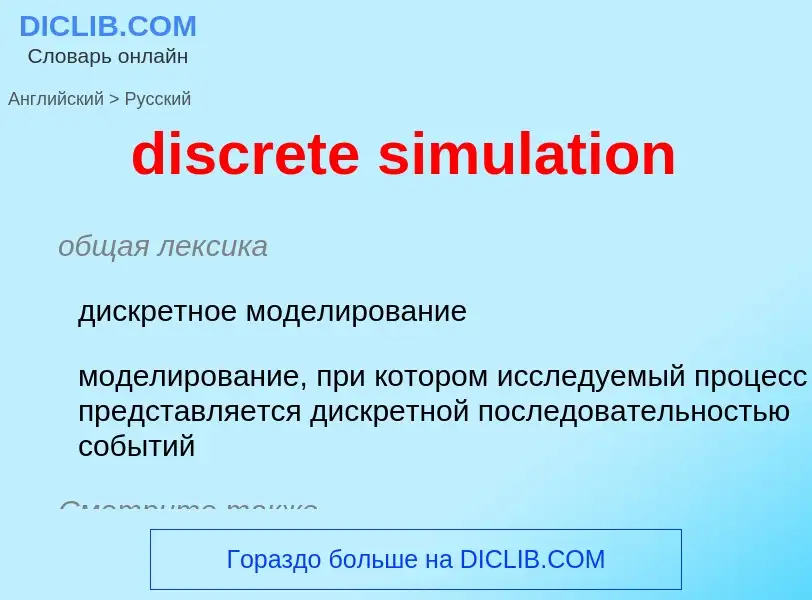Translation and analysis of words by ChatGPT artificial intelligence
On this page you can get a detailed analysis of a word or phrase, produced by the best artificial intelligence technology to date:
- how the word is used
- frequency of use
- it is used more often in oral or written speech
- word translation options
- usage examples (several phrases with translation)
- etymology
discrete simulation - translation to English
общая лексика
дискретное моделирование
моделирование, при котором исследуемый процесс представляется дискретной последовательностью событий
Смотрите также
математика
дискретная группа
математика
дискретная подгруппа
Definition
Wikipedia
A discrete-event simulation (DES) models the operation of a system as a (discrete) sequence of events in time. Each event occurs at a particular instant in time and marks a change of state in the system. Between consecutive events, no change in the system is assumed to occur; thus the simulation time can directly jump to the occurrence time of the next event, which is called next-event time progression.
In addition to next-event time progression, there is also an alternative approach, called incremental time progression, where time is broken up into small time slices and the system state is updated according to the set of events/activities happening in the time slice. Because not every time slice has to be simulated, a next-event time simulation can typically run faster than a corresponding incremental time simulation.
Both forms of DES contrast with continuous simulation in which the system state is changed continuously over time on the basis of a set of differential equations defining the rates of change of state variables.

